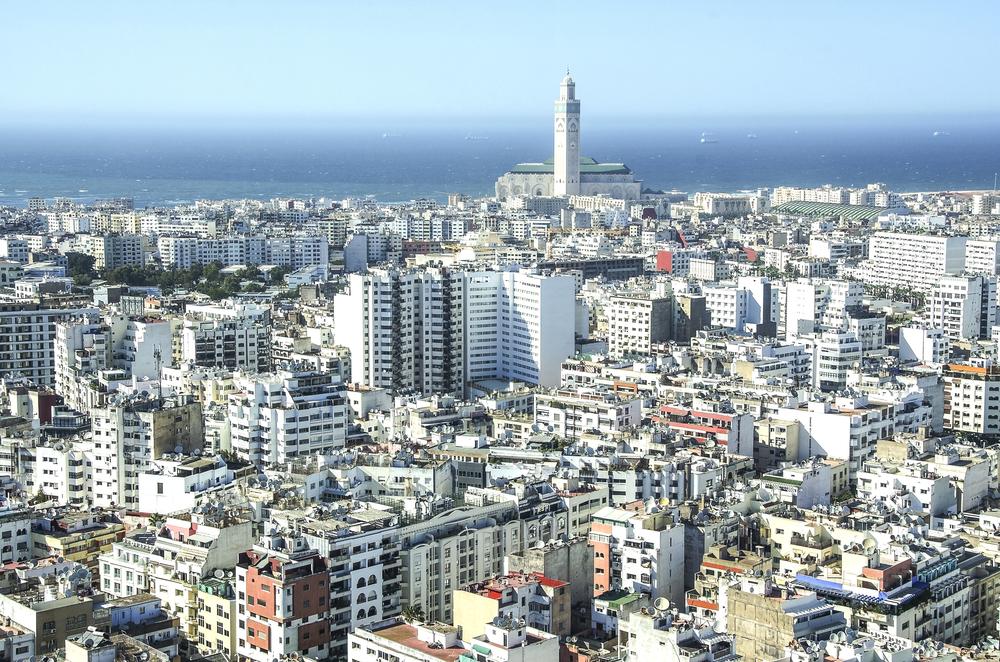In a significant development for security collaboration in the region, Morocco and Cape Verde are in the final stages of formalizing an agreement on military cooperation. This initiative highlights both nations’ commitment to enhancing their defense capabilities and fostering stability within North Africa and the broader Atlantic space. As geopolitical dynamics evolve, the pact is expected to pave the way for deeper strategic ties, joint training exercises, and intelligence-sharing initiatives. This article delves into the implications of this agreement, the motivations behind the partnership, and its potential impact on the security landscape in the region.
Morocco and Cape Verde Strengthen Ties Through Military Cooperation Agreement
In a significant diplomatic move, Morocco and Cape Verde are finalizing a military cooperation agreement aimed at enhancing security and defense collaboration between the two nations. This partnership underscores a mutual commitment to address regional threats, paving the way for joint training exercises, intelligence sharing, and resource allocation. Such an agreement marks a pivotal step in strengthening bilateral relations and promotes a framework for ongoing dialog in military strategy and operations.
The forthcoming agreement is expected to focus on several key areas, including:
- Joint Military Exercises: Collaborative training initiatives to improve operational readiness.
- Intelligence Sharing: Enhancing data exchange regarding regional security issues.
- Capacity Building: Support in developing military infrastructure and personnel training.
Both nations recognize the importance of fostering regional stability, leading to a robust framework that not only addresses immediate security needs but also promotes long-term strategic partnerships. The collaboration between Morocco and Cape Verde stands as a model for how smaller nations can unite to bolster their defense capabilities in an increasingly complex geopolitical landscape.
Key Objectives and implications of the Military Partnership
The military partnership between Morocco and Cape Verde marks a significant milestone in enhancing regional security and cooperation in West Africa. Key objectives of this partnership include:
- Strengthening Defense Capabilities: Both nations aim to bolster their armed forces through joint training exercises and sharing of resources.
- Combating Terrorism: A collective front against terrorism will be a primary focus, addressing threats posed by extremist groups in the Sahel region.
- Enhancing Intelligence Sharing: The agreement will foster better communication and intelligence-sharing mechanisms to improve early warning systems.
- Promoting Maritime security: Collaborative efforts will also focus on securing coastal waters against piracy and illegal fishing activities.
The implications of this military cooperation are far-reaching. Firstly, it signifies a commitment to regional stability and solidarity among African nations, potentially attracting further partnerships. Additionally, this alliance may encourage investment in defense infrastructure, leading to job creation and economic upliftment. A potential joint training program could be created, allowing for knowledge exchange that enhances military competency across both countries. The resulting synergy could serve as a model for similar partnerships in the region, thereby promoting a more secure and cooperative environment.
Regional Security Dynamics and the Role of Morocco and Cape Verde
The evolving security dynamics in the Atlantic region are underscored by the strengthening military ties between Morocco and Cape Verde, two nations increasingly recognizing the importance of collaborative defense strategies. as pressures from various forms of instability in the region continue to mount,this partnership is pivotal. Both countries share an interest in addressing a range of security challenges, including terrorism, drug trafficking, and maritime security, and have identified joint military cooperation as a means to bolster their defense capabilities.
through this agreement, Morocco and Cape verde aim to establish a framework for bilateral training exercises, intelligence sharing, and logistical support. Key areas of focus will include:
- counter-terrorism initiatives: Enhancing operational readiness to address threats that transcend borders.
- Border Security: Strengthening patrols and surveillance to mitigate illicit activities.
- Maritime security: Collaborating on initiatives to protect vital sea routes and counter piracy.
This collaborative effort not only reflects a growing commitment to regional stability but also signals the importance of North-South cooperation in the face of common challenges. The implications of this partnership could have a ripple effect, enhancing overall security in West Africa and contributing to a stronger collective response to emerging threats.
Strategic Benefits for Both Nations in Enhanced Defense Collaboration
The impending military cooperation agreement between Morocco and Cape Verde represents a significant advancement in regional security dynamics. By pooling their defense capabilities, the two nations can leverage shared intelligence, joint training exercises, and resource optimization to bolster their respective military readiness.This collaboration aims to address common threats, particularly those posed by transnational organized crime and maritime security challenges in the Atlantic region. Moreover, enhancing their defense ties is likely to attract international investment and offer both countries a stronger voice in global security discussions.
In addition to improving defense capabilities, the partnership paves the way for enhanced diplomatic relations. Through a steady exchange of military personnel and cooperation in technology and hardware acquisition, both nations can stimulate local economies and foster job creation in defense sectors. The potential establishment of a joint defense mechanism could contribute to a more stable political environment, where common goals are pursued collaboratively. This strategic agreement signifies a commitment to not only national security but also to fostering economic growth and regional solidarity, which are crucial for sustained peace and prosperity.
Recommendations for Effective Implementation of the Agreement
To ensure the accomplished implementation of the military cooperation agreement between Morocco and Cape Verde, several strategic measures should be prioritized. Clear communication protocols must be established between both nations to facilitate ongoing dialogue and exchange of information. This involves appointing dedicated liaison officers who can manage cooperation initiatives and address any arising issues swiftly. Furthermore,joint training exercises should be scheduled regularly,allowing both military forces to familiarize themselves with each other’s operational procedures and enhance their collaborative capabilities.
Incorporating a monitoring and evaluation framework will be critical for assessing the progress of the agreement. This framework should include key performance indicators that are agreed upon by both parties, ensuring accountability and transparency. To further solidify partnership, establishing cultural exchange programs can play a significant role in fostering mutual respect and understanding. These initiatives will not only enhance military ties but also strengthen the social fabric between the countries. The table below outlines the key aspects of the implementation strategy:
| Key Aspect | Description |
|---|---|
| Communication Protocols | Establishing dedicated liaison roles to manage negotiations. |
| Joint Training Exercises | Regular military drills to enhance coordination. |
| Monitoring Framework | Implementation of performance indicators to measure success. |
| Cultural Exchange Programs | initiatives aimed at building social and military ties. |
Future Prospects: How Military Cooperation Could shape North African Stability
The impending military cooperation agreement between Morocco and Cape Verde underscores a significant shift in the approach to regional stability in north Africa. by enhancing collaboration within military frameworks, both nations aim to foster a proactive stance against common security threats, including terrorism and organized crime.This partnership is not only a strategic alignment but also a pivotal step towards establishing a cohesive defense strategy. The benefits of such cooperation include:
- Improved Intelligence Sharing: Enhanced coordination can lead to more effective responses to emerging threats.
- Joint Training Exercises: Conducting regular exercises can bolster military capabilities through shared knowledge and experience.
- Resource Optimization: Collaborative initiatives can lead to better resource utilization among countries with limited military budgets.
The implications of this agreement extend beyond mere military logistics; it symbolizes a commitment to peace and stability in the region. Not only does it pave the way for collaborative defense initiatives, but it also strengthens diplomatic ties. As both countries engage in this partnership, they are likely to inspire other nations in North Africa to consider similar alliances, ultimately contributing to a more secure and stable regional environment.Possible future outcomes of this cooperation could include:
| Outcome | Description |
|---|---|
| strengthened alliances | Development of a network of military partnerships across North Africa. |
| Enhanced Regional Security | Collective defense mechanisms to counteract regional threats effectively. |
| Economic Collaboration | Increased stability may lead to improved economic conditions through foreign investment. |
Future Outlook
the recent negotiations between Morocco and Cape Verde mark a significant step towards enhanced military cooperation between the two nations. As both countries seek to bolster their security frameworks and operational capabilities, this agreement reflects a broader trend of collaboration in an increasingly complex security landscape. The implications of this partnership could resonate well beyond their borders, fostering greater stability in the region while addressing common challenges such as terrorism and organized crime. As Morocco and Cape Verde finalize the details of their accord, the international community will be watching closely to see how this collaboration evolves and what it means for regional dynamics in North Africa and beyond. With both nations committed to mutual development and security, this agreement could pave the way for stronger ties and a more unified approach to preserving peace and stability in the Atlantic corridor.

